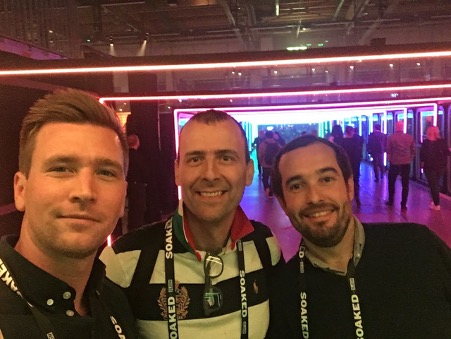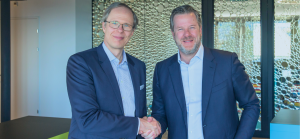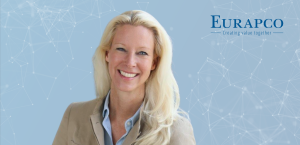Zurich, 16 June 2020
The Eurapco Lab was created in 2019 with the aim to accelerate innovation across the Eurapco Alliance. Eurapco spoke to Hampus Svenblad, Markus Wolf and Alfonso Gomez, members of the Core Innovation Team assigned by Länsförsäkringar, la Mobilière and Reale Mutua respectively, about the role of the lab, ongoing initiatives and challenges they have been facing in this journey towards the creation of innovative solutions for the insurance sector.
What is the purpose and strategy of the Eurapco Lab?
Markus Wolf: The Eurapco Lab was designed to help Partners leverage capabilities and solutions across the Alliance, follow trends, explore innovative ideas and validate new products and services while building an ecosystem with strategic partners, suppliers, start-ups, universities and beyond. In order to guide our actions towards a sustainable growth, we decided to focus our strategy on the horizons of innovation: Horizon 1 is about immediate activities where the objective is to defend and extend the Partners core businesses, while the Horizon 2 develops the Partners competencies into new markets in the near term. Finally, we have the Horizon 3 which aims to create genuinely new businesses by introducing elements that still do not exist. In this sense, we are talking about innovations that generally produce results in 10-15 years. We, the core innovation team, focus primarily on the Horizons 2 and 3.
Which projects have you been working on?
Hampus Svenblad: Right now, we have 17 initiatives in the pipeline covering essential areas such as mobility, health, housing, sustainability and object-oriented insurance applications.
I would like to start by mentioning the Bike Bell project, which is in its concept and validation phase. In this stage, we define the overall scope, time needed and KPIs for a future pilot. Moreover, we also test our hypothesis often through a pilot to ensure a quick feedback loop. This is how we make sure we solve “real†problems before we move into the scale-up phase. The Bike Bell is a smartphone application together with a platform that uses open data sources to ensure a safe bike route and alarms users about areas with, for instance, a high theft rate. In addition to covering the usual causes of accidents and inconveniences experienced by consumers, this concept would be a great choice for the Eurapco Partners. Especially now with the changes in life-style due to the coronavirus crisis with more people commuting by bicycle. The increased number of bikes on the road and the need for physical distancing have been forcing cities to expand their cycling infrastructure. Thus, we believe that the Bike Bell initiative deserves further exploration by the Partners.
Markus Wolf: Another concept is an insurance model for gig economy workers and freelancers. The idea emerged from factors driving the growth of the gig economy such as the vast number of online platforms that allow people to work remotely, the possibility to work for multiple employers simultaneously, the need for a flexible lifestyle urged by younger generations and the evolving relationship between workers and job providers that gained even more importance after the coronavirus crisis. This flexible way of working comes with a price as income fluctuation, the absence of some company benefits and the lack of insurance in case of loss or theft of equipment.
Therefore, our goal is to create a comprehensive customer-centric digital solution that would cover all the problems mentioned at an affordable price for the consumer. This project is still in its exploration phase where we develop concepts and functionalities based on the most current market trends in the insurance sector.
We also have the Air-Sensor Data Network initiative used to measure the quality of the air. The concept is to install relatively cheap and sensitive air-sensor devices on facades of buildings across Europe. As insurance companies, the Partners would own the network and the collected data and would be able to sell it through a platform to different industries such as brokers of apartment buildings and car manufactures. This is an example of a Horizon 3 initiative that could be of great value to insurance companies for new future business models. Furthermore, it shows the commitment to proactively tackle the problem of air pollution as cooperative insurance companies and supports the UN Sustainable Development Goals with a pan-European air sensor network.
Alfonso Gomez: The core innovation team has also been facilitating the Eurapco Health Group during the coronavirus crisis. The framework developed with our help identified customer problems caused by COVID-19, potential solutions to mental health issues for both patients and health workers and increased anxiety in individuals with COVID-19. This allowed us to quickly understand the major challenges and focus on the topics that were most relevant to the partners. With that being said, the Health Group is now looking into digital health solutions that could enhance their Telemedicin platforms or Health Contact Centers. The group intends to get ready for a possible second wave of the coronavirus by finding new ways of delivering healthcare that would be more cost-effective for the Partners and enable them to build new business models and propositions.
The support from the core innovation team to the Health Group has shown how the Eurapco Lab can help speed things up and bring new perspectives to the Eurapco Alliance and its Partners. Finally, we have a project in the pilot phase, which is a smart water alarm with the objective of preventing house damage caused by water.
Could you please tell us more about the Smart Water Alarm project and the benefits to the Partners?
Alfonso Gomez: The idea of the Smart Water Alarm project came from Länsförsäkringar. The company was interested in developing a solution that prevents water leakages in houses and buildings. The findings showed that approx. 90 per cent of the water leaks start with small drops and only 10 per cent due to a bursting pipe. Additionally, we discovered that houses from the 70s and 80s are the most affected, but this is something that could vary on different markets.
Based on the results obtained, we started testing different solutions until we got to a clip-on device as our preferred choice for the subsequent phase of the project. After defining the setup of the pilot, Länsförsäkringar formed a project team to help us work on it. They have approached 200 homeowners and on 7 May, we got the first results of the pilot initiated in April. The 140 devices installed pointed out 16 potential leaks from which two were repaired by the customer and four checked by a plumber. Our goal is to conclude the pilot by the end of June.
As for the benefits to the Partners, we strongly believe that having such a solution can drastically reduce claim costs as well as water footprint. If you have an ongoing small leakage, you could be looking at extensive damage to your floor, walls, furniture and electrical appliances. This new solution is just the beginning since it is applicable for detecting and preventing leakages in houses. We continue to explore some solutions for commercial and apartment buildings and are currently looking for an Eurapco Partner to test it with us.
Tell us about the challenges you have been facing so far.
Hampus Svenblad: The process of gathering, understanding and sharing anonymous and aggregated data for analytical purposes is still not sophisticated enough and needs improvement since the Eurapco Partners are in different stages of maturity regarding this topic. But this is a way how we see Eurapco creating real value – by helping Partners understand how to deal with their data collection and structure to make a greater impact. Eurapco could serve as a hub for collection and analysis of data for the Partners to better comprehend the dynamics of the Euro-pean insurance market.
Another challenge is our mission to explore Horizon 3 initiatives. This kind of exploration is usually very far from our Partners’ core businesses, but it is essential for us to secure their future income in the long-term. Therefore, it is important to jointly start investigating and exploring future opportunities by sharing resources to reduce risk in these radical innovation projects. Another problem the team has encountered is to make it tangible for people to understand concepts that at first may sound too futuristic.
Finally, the third challenge is about the usual way of testing new products and services in the insurance sector. It is normally done with the companies’ own employees. This way you tend to check off the three F’s – family, friends and fools to answer your questions. In my opinion, the problem with this approach is that you tend to get the same results since people overvalue your solution. It does the job from a methodological perspective but leaves much to be desired concerning the real customer experience.
Fortunately, Länsförsäkringar has already started implementing tests with customers by applying sampling distribution and we hope to get all the Partners onboard with this way of testing new solutions.
How can Partners profit from the engagement with the Lab?
Markus Wolf: As the sector continues to evolve and change, we also see an increase in the number of significant opportunities of co-investment in areas such as sustainability and digitalisation. Such developments are only possible if the Partners increase their joint efforts and participate more actively by submitting relevant ideas and delegating an innovation manager to strengthen the core innovation team capabilities. Naturally, Partners benefit from co-investment because it reduces their capital outlay and achieves greater levels of productivity – as well as their capacity to innovate. They also have the potential to take full advantage of the knowledge and expertise of other Partners, reduce risks of innovation and keep up with market trends.
Most importantly, well-targeted investments, alongside close collaboration between Eurapco Partners, strategic partners, suppliers, start-ups, and universities can make a significant contribution to the Partners’ capacity to innovate, especially with the slowdown in global economic activity caused by the coronavirus crisis. We see the Eurapco lab as an instrumental incubator with the potential to generate new business opportunities and substantial return on investment for all parts involved.
Dirlene Lopez
Marketing and Communication Specialist






